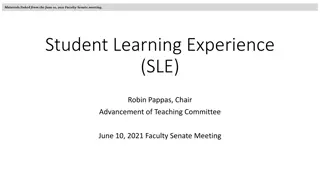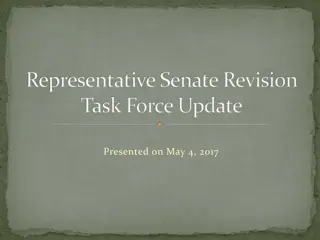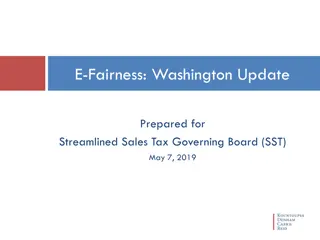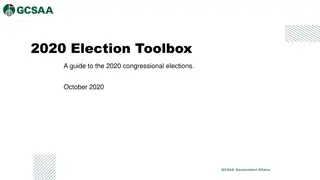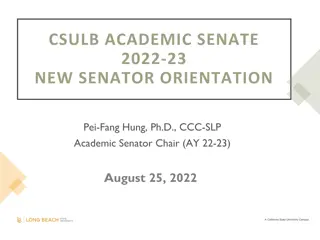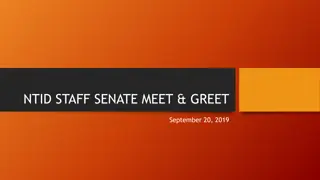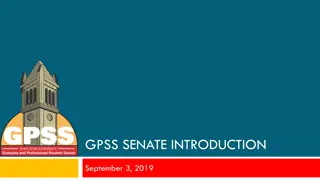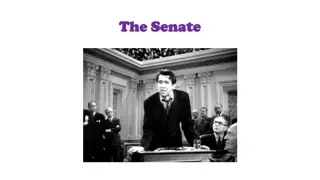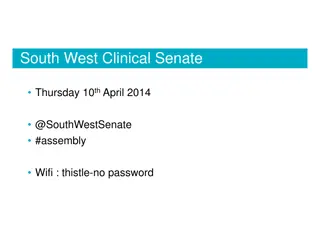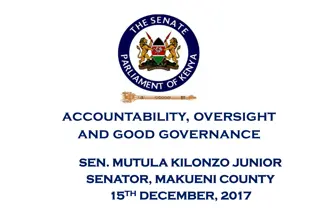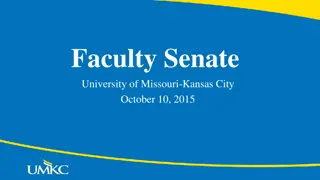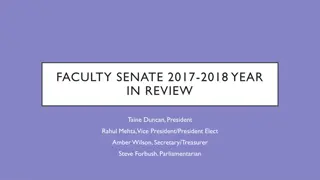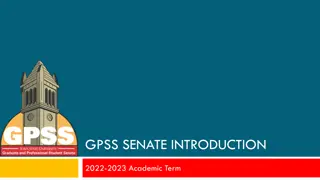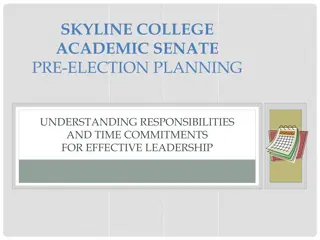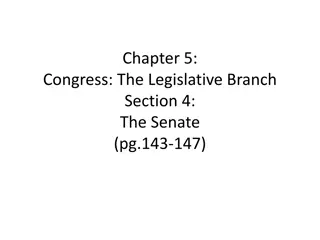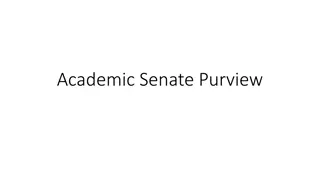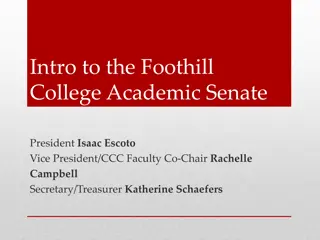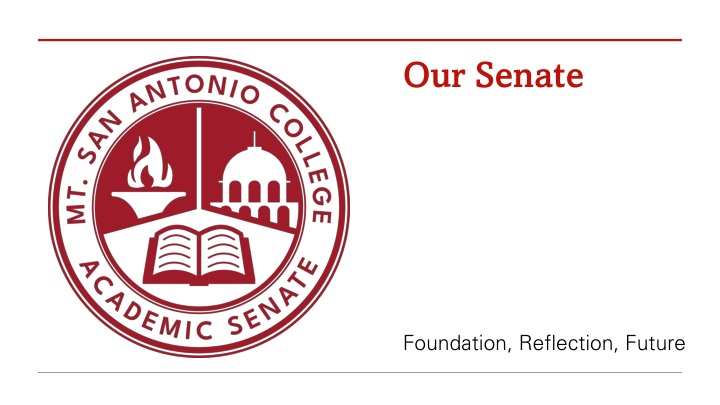
Senate Foundation: Upholding Responsibilities and Rights
Explore the essence of Our Senate Foundation, reflecting on our obligations and rights within the legal framework. Delve into the operational aspects, committee structures, and the legal side of Senate activities for a more effective and compliant operation.
Download Presentation

Please find below an Image/Link to download the presentation.
The content on the website is provided AS IS for your information and personal use only. It may not be sold, licensed, or shared on other websites without obtaining consent from the author. If you encounter any issues during the download, it is possible that the publisher has removed the file from their server.
You are allowed to download the files provided on this website for personal or commercial use, subject to the condition that they are used lawfully. All files are the property of their respective owners.
The content on the website is provided AS IS for your information and personal use only. It may not be sold, licensed, or shared on other websites without obtaining consent from the author.
E N D
Presentation Transcript
Our Senate Foundation, Reflection, Future
Our Obligations and Rights We must act within the law. We should consider local context and make all final decisions in ways that conform to the law but also best meet local needs. Order of operations: Code of Federal Regulations (CFR) California Education Code (Ed Code) Title 5 California Code of Regulations Local board policy and administrative procedure
Questions To Ask Ourselves What is the issue? Is there legal language or other documentation that should be cited? What is the process that should be followed? If it wasn t followed, what suggestions do we have for making sure that the correct process is followed?
Our Issue Senate committees are legislative bodies and therefore have to abide by the Brown Act. How can we best operate under the law and Which of our groups might the Brown Act not apply to? and make senate meeting accessible and effective? Does our current senate committee structure still work for us?
The Legal Side Citations California Government Code section 54952(b) defines a legislative body as a local agency's commission, committee, board, or other body: That is created by a legislative body's formal action, charter, ordinance, or resolution That is either permanent or temporary That is either decision-making or advisory Academic Academic Senate Senate is is a a legislative legislative body body. . Standing Standing committees Brown Brown Act, Act, regardless of their composition. However, advisory committees that are made up of less than a quorum of the legislative body are not considered legislative bodies, unless they are standing committees committees of of a a legislative legislative body body are are considered considered legislative legislative bodies bodies for for the the purposes purposes of of the the
Our Senate Constitution Committees formed through vote by the senate We currently have 14 Senate councils/committees
Mt. SAC Academic Senate Committees Structure Sustainability Student Equity, Student Learning & Student Success Guided Pathways Board of Trustees AMAC Pres, VPSS, VPI, Senate Pres, Senate Co-VP s relied upon If primarily Academic Senate Equivalency Nominations, Elections & Leadership Development Curriculum & Instruction Council Student Preparation, Equity, & Achievement Council Faculty Professional Development Council Senate Awards Distance Learning Flex Faculty Learning Activities Student Equity Planning Assessment & Matriculation Textbook & Instructional Materials Educational Design Out- comes Persistence & Retention Transfer & GE Subcmt Mapping & Catalog Guided Pathways Cross-Council Committee Note: All senate committee Purpose & Function statements will include Sustainability, Guided Pathways, Accreditation, and Equity. Approved by Senate 12/5/2019, updated June 2020 to reflect AMAC mutual agreement. Updated with deletion of Content Review 4.21.21. Updated 6.9.22 to include Board of Trustees. Last updated in 2022
The Brown Act Transparency and open government are the cornerstones of a strong democracy. Transparency and open government are the cornerstones of a strong democracy. All meetings of the legislative body of a local agency shall be open and public, and all persons shall be permitted to attend any meeting of the legislative body of a local agency, except as otherwise provided in this chapter. Public has right to participate in meeting. Meaningful agenda must be posted at least 72 hours prior to meeting. Discussion and action limited to items on agenda. Applies to committees created by formal action of the legislative body. Violations of Brown Act can lead to invalidation to an agency s action.
Governing Bodies The governing body of a local agency or any other local body created by state or federal statute is subject to the Brown Act. Examples: Community College District Board of Trustees, City Council, School Board Education Code 70902: Every community college district shall be under the control of a board of trustees Bottom Line: If created by statute, the local body is covered by the Brown Act From ASCCC
Appointed Bodies General Rule General Rule: A commission, committee, board, or other body of a local agency, whether permanent or temporary, decision-making or advisory, created by charter, ordinance, resolution, or formal action of a legislative body. Bottom Line: Bottom Line: Committees created by formal action of a legislative body are subject to the Brown Act. From ASCCC
Appointed Bodies Standing Committees Standing Committees of a legislative body are ALWAYS Standing committees, irrespective of composition, which have either: (1) a continuing subject matter jurisdiction, or (2) a meeting schedule fixed by resolution or formal action of the legislative body. ALWAYS subject to the Brown Act. Examples: long-term committees on professional development or curriculum. From ASCCC
Appointed Bodies Temporary Advisory Committee Exception Ad Hoc: Made or happening only for a particular purpose or need. A temporary advisory committee composed solely of less than a quorum composed solely of less than a quorum of the legislative body that serves a limited or single purpose, that is not perpetual, and that will be dissolved once its specific task is completed is not subject to the Brown Act. From ASCCC
Serial Meetings Are strictly prohibited! A majority of the members of a legislative body shall not use a series of communications of any kind, directly or through intermediaries, to discuss, deliberate, or take action on any item of business that is within the subject matter jurisdiction of the legislative body. - GC Section 54952.2(b)(1) Common Types of Serial Meetings: Daisy Chain Hub and Spoke Email From ASCCC
Meetings Exceptions to the Rule Individual Contacts But beware of the serial meeting! Social or Ceremonial Occasions So long as business of the state body is not discussed Conferences So long as they are open to the public and involve subject matter of general interest to the public Meetings of Another Legislative Body The meeting must be open to the public and properly noticed From ASCCC
Teleconference Meetings Agendas must identify each teleconference location and be posted at each location Each location must be open and accessible to the public and allow for public participation Example: Hospital bed Example: No participation by cell phone in car Agenda must provide an opportunity for public comment from each teleconference location At least a quorum of the legislative body must participate from locations within the local agency s jurisdiction All votes must be audible and taken by roll call From ASCCC
The Brown Act Implications if not followed We can be sued Decisions can be invalidated Before taken to court, there is an opportunity to correct Intentional hiding of information is a criminal act Note: We need to look into ADA accommodations
Our Process Recommendations we make should be informed and conclusions we draw within the parameters mandated by law. Effects and outcomes should be monitored. Changes should be made to the implementation as necessary. My ask: Senate Exec taskforce to address the question: What are our needs to support us in our senate s work and be in compliance with the law. our senate s work and be in compliance with the law. Report back out to senate exec November 21 Report back out to senate exec November 21st st Senate Academy topic for this month (11/22)? Senate Academy topic for this month (11/22)? get input from faculty get input from faculty What are our needs to support us in
Board Docs El Camino CC Pasadena City CC Mt. SAC Citrus CC Board of Trustees
Meeting Modality Academic Senate Mt. SAC: in person Citrus: In person and Zoom Pasadena City: In person El Camino: Zoom Los Angeles CC District: in person and Zoom (for non-voting attendees) San Jacinto: In person and live stream viewing through Zoom
Extra Slides Terms and Ed Code
Foundational Terms Participatory Participatory Governance Title 5 53203(a) states that local governing boards shall provide that the governing board or its designees will consult collegially with the academic senate when adopting policies and procedures on academic and professional matters. The The definition definition of of collegial collegial consultation consultation in in Title Title 5 5 53203 rely rely on on the the academic academic senate s senate s recommendations recommendations or or reach senate senate. . Both options for collegial consultation under Title 5 require direct communication between the academic senate and the governing board or its representatives. While a college council may serve various positive purposes, decisions regarding academic and professional matters must, according to Title 5, be primarily based on consultation with the academic senate, not on equal voices for all constituencies. Governance / / Collegial Collegial Consultation Consultation 53203(d) (d) indicates indicates that reach mutual mutual agreement that the agreement with the board board will will either either primarily with the the academic primarily academic
Foundational Terms Shared Governance / Effective Participation Shared Governance / Effective Participation Participating effectively in district and college governance is shared involvement in the decision- making process. Does not imply total agreement Same level of participation by all is not required Final decisions rest with the governing board. Final decisions rest with the governing board.
The Law Ed Code 70902(b)(7) Board of Governors shall establish minimumstandards and local governing boards shall establish procedures not inconsistent with those standards to ensure the following: Faculty, staff, and students the right to participate governance. participate effectively effectively in district and college The right of the academic senates to assume primary recommendations in the areas of curriculum primary responsibility responsibility for making and academic academic standards standards. curriculum and
Regulation Title 5 Title 5 53203 Academic Academic Senate Senate Role Role The governing board shall adopt policies for appropriate delegation of authority and responsibility to its academic senate. providing at a minimum the governing board or its designees consult collegially with the academic senate when adopting policies and procedures on academic and professional matters.
Regulation Title 5 Title 5 53200 Consult Consultcollegially collegially means means: : Relying primarily upon the advice and judgment of the academic senate (Title 5 53203, (d) (1)); or Reaching mutual agreement between the governing board/designee and representatives of the academic senate (Title 5 53203, (d) (2)). 10+1 The Governing Board has final say.
Regulation Title 5 Title 5 55002 and Title 5 53203(f) Curriculum Curriculum Committee academic senate Committee: established by mutual agreement between the administration and the Appointments Appointments to to College district committees, task forces, or other groups dealing with academic and professional matters, shall be made, after consultation with the chief executive officer or his or her designee, by the academic senate. Notwithstanding this subsection, the collective bargaining representative may seek to appoint faculty members to committees, task forces, or other groups College Bodies Bodies: The appointment of faculty members to serve on college or
The Brown Act Teleconference location permitted by Section 54953. Meetings subject to the Brown Act are not limited to face-to-face gatherings. They also include any communication medium or device through which a majority of a legislative body discusses, deliberated, or takes action on an item of business outside of a noticed meeting. They include meetings held from remote locations by teleconference or videoconference.

